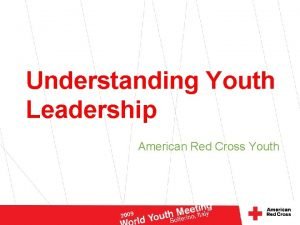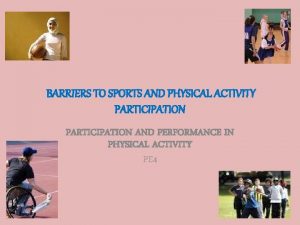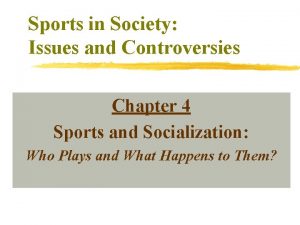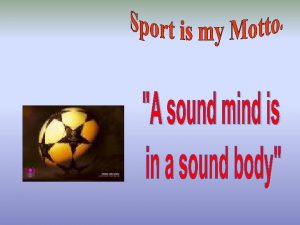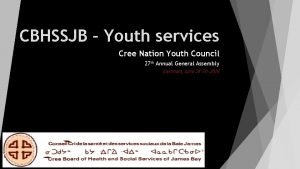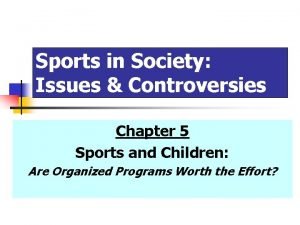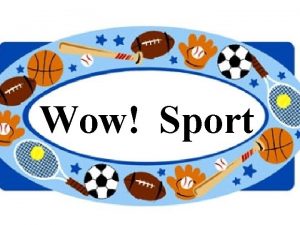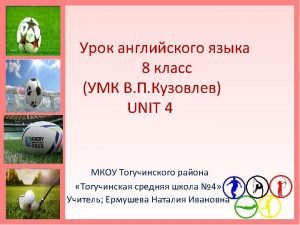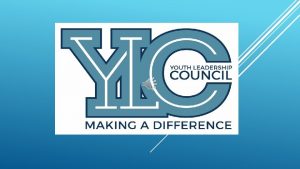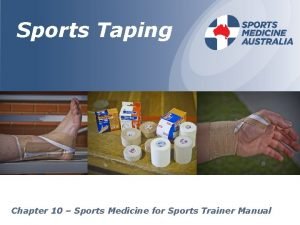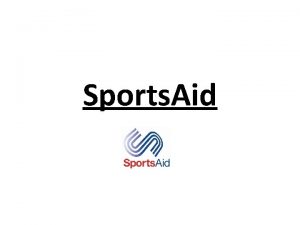Youth Sports Youth Sport Participation The National Council













- Slides: 13

Youth Sports

Youth Sport Participation • The National Council on Youth Sports estimates that as many as 60 million (p. 237) American youths participate in at least one organized sport. This equals 65% of youth. • An estimated 3 -7. 5 million volunteer youth sport coaches.

Centers for Disease Control and Prevention (1999) • Despite the involvement in sport Almost half of America’s youth do not take part in regular vigorous exercise • 14% of youth report no physical activity • 19% of high school students get the recommended level of physical activity

Three Important Areas • Physical Development • Psychological Development • Social Development

Physical • Overuse injuries • Caused by repeated stresses on joints and muscles • Gymnastics wrist • Swimmer’s shoulder • Pitcher’s elbow

Epiphyseal Injury • Bone growth takes place through primary ossification in the bone center and secondary ossification at the end of the bone. In adolescence the two loci for growth fuse, and the bone is fully developed. Injury at the epiphysis is serious because of the risk of permanent disability

Psychological • What examples were presented in the videos that would lead to psychological dysfunctions?

Social • What examples in the video illustrate the dysfunctions in youth sport to social development?

Eusfunctions • Good sportsmanship • Development of cooperative behavior • Acceptance of all persons regardless of race, creed, and origin • Leadership and follower ship • Self discipline • Provides avenues for social acquaintances • Fitness and skill development

Dysfunctions • • Ego-centered athletes: inflated ideas Winning at all costs False values: overemphasis on athletics Harmful pressures

Dworkin, Larsen, and Hansen (2003) Study • High School students involved in sport: Participants viewed the activity as contributing to goal setting, time management, and emotional control

Seefeldt, Ewing, & Walk (1992) • Survey of 8000 youth The reasons for participation: • To have fun • To do something I am good at • To stay in shape • To learn new or improve my skills • To play as part of a team

Disengagement • No longer interested in the sport • It was no longer fun • The coach played favorites/was a poor teacher • Wanting to participate in other activities
 Seo for youth sports clubs
Seo for youth sports clubs Latar belakang partial participation
Latar belakang partial participation National youth council red cross
National youth council red cross Participation level in sport
Participation level in sport Integration continuum for sport participation
Integration continuum for sport participation Pleasure and participation sports
Pleasure and participation sports Indoor and outdoor sports examples
Indoor and outdoor sports examples Adventist youth society
Adventist youth society Cree nation youth council
Cree nation youth council Cabrillo beach youth waterfront sports center
Cabrillo beach youth waterfront sports center Ministry of youth and sports cambodia
Ministry of youth and sports cambodia Major trends in youth sports
Major trends in youth sports Oina game
Oina game New zealand national sport
New zealand national sport


